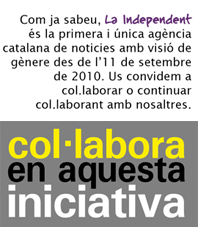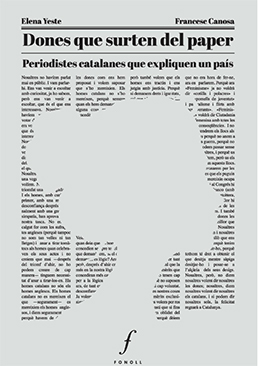Brussels, 7th March 2014
For 8 March – International Women’s Day – the Andalusian Association for Human Rights (APDHA) and the European Association for the Defense of Human Rights (AEDH) declare their opposition to the Spanish government’s draft law on abortion.
The Andalusian Association for Human Rights, with the support of the European Association for the Defense of Human Rights, wishes to declare its firm opposition to the abortion reform under consideration by the Spanish government.
As Spain, and more generally all of Europe, is currently in a period where achievements made in women’s rights and gender equality are being called into question, the world will celebrate International Women’s Day tomorrow, 8 March.Far-right parties and movements have banded together to impose their values to the detriment of women’s rights:returning to the traditional family, relegating women to an inferior status, criminalising abortion, and on a broader level, discriminating against gay and transsexual individuals, women and foreigners.We have recently seen such movements meet with success in Switzerland, and have witnessed violent reactions in response to controversial gender issues raised in France.
Meanwhile, some right-wing parliament members support these regressive movements and the revoking of rights we had believed acquired. They are gaining momentum around Europe and finding a receptive audience in the greater population.
This is the case in Spain, where a series of measures have been undertaken that not only directly affect women’s lives, rights and freedoms but also backtrack on advances made in terms of equality.Examples abound: the dismantling of the “Dependence Law”, generalised budget cuts to all social policies, labour reform, the persecution of prostitutes, etc.
Among these measures, the government’s proposed draft law on abortion, widely known as Gallardón’s Law, is especially troubling.In light of our view on women’s and human rights, we oppose this legislation.
Ø It is an unnecessary legislative reform, especially given the broad social consensus on the current abortion law, which addresses the needs for which it was adopted.The current law gives women time make a choice about whether they want to continue a pregnancy and ensures their legal protection as well as that of health professionals involved in that choice.It should also be noted that during the brief period the law has been in force, the number of abortions has decreased.
Ø The decision by the Spanish government is above all an ideological one.Through this draft law, the government is seeking to impose religious beliefs (in this case, Catholic) upon all of the country’s citizens. This is inadmissible in a pluralistic, secular society such as that of Spain.
Ø The government’s proposed draft law would be a step backwards, repealing rights to a level not seen since legislation in force in 1985.The new law would no longer allow abortions in cases of severe deformities of the foetus and increases restrictions to abortion care.Moreover, this reform distances Spain from the majority of European countries, putting it on par with such countries as Poland and Ireland, which have some of the strictest abortion laws in the EU.
Ø By limiting women’s sexual health and reproductive rights, the Popular Party’s (PP) draft law will have serious repercussions on women. Women will no longer have control over whether they become mothers. The law effectively considers women unable to make the decisions that are right for them.
Ø The government has lost sight of the fact that regardless of how a society views and regulates abortion, women still terminate pregnancies.Ignoring this fact and not providing solutions creates a public health problem that disproportionately affects lower-income and vulnerable women (who are unable to travel abroad to seek an abortion).Experience shows that bans and restrictions do not lower abortion rates and actually create legal uncertainty for health professionals, increase dangerous abortion practices and lead to a rise in late-term abortions.
Ø Data show a correlation between abortion rates, sex education policies and access to contraception.The current law, which the government wants to repeal, established the requirement to provide specific sex education policies involving the educational system for the first time in Spain.It guarantees the right to education and sexual health, which can help reduce sexually transmitted diseases, unwanted pregnancies and abortion.
Ø It is important to consider the views of women between the ages of 16 and 18.This is why we support the consenting age of 16 years, the age requirement for other provisions of the law on patient autonomy.
Ø Defending the rights of health professionals to not perform abortions based on their beliefs should not hinder access to abortion care as a medical procedure for all women who need it, regardless of where they live.
Ø Contrary to what the government maintains, the current law complies with the doctrine held by the Constitutional Court of Spain, which states that the nasciturus (unborn child) is constitutionally protected.While it is true that because it not a legal entity it does not enjoy legal rights (SSTC 53/85, 212/96 and 116/99), the provision of the law allowing abortion during the first weeks of pregnancy protects the developing foetus while also respecting women’s rights.
From a European standpoint, the draft law distances Spain from those countries with more advanced abortion rights.It leads to and reinforces extreme reactionary movements and policies by countries attempting to limit women’s rights and impose morals governing sexual liberty.
Both AEDH and APDHA defend a woman’s right to freely and responsibly choose whether she wants to become a parent.For women to do so, it is essential that adequate reproductive services be guaranteed, including safe abortion care.
For its part, AEDH believes the fight against criminalising abortion in Spain should be taken up by all European citizens.This is the only way to create a future free from reactionary movements, sexism, xenophobia and racism.This is why AEDH stands behind Spain’s women and men who oppose all new attempts to limit their rights.
On behalf of the Andalusian Association for Human Rights, we defend a woman’s right to freely and responsibly choose whether she wants to become a parent.For her to do so, appropriate services and support for safe abortion procedures must be ensured. Women must also have access to abortion care if they so choose.We oppose any regulations that call into question the ability of women to decide what is right for them and we will continue to fight against this restriction of freedom.
Contact :
Rafael LARA, AEDH Chairman
AEDH, Association Européenne pour la défense des Droits de l’Homme






